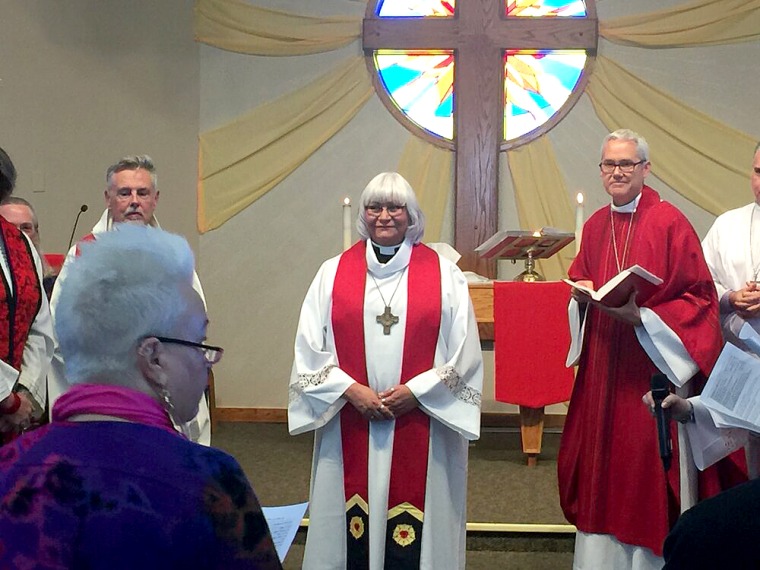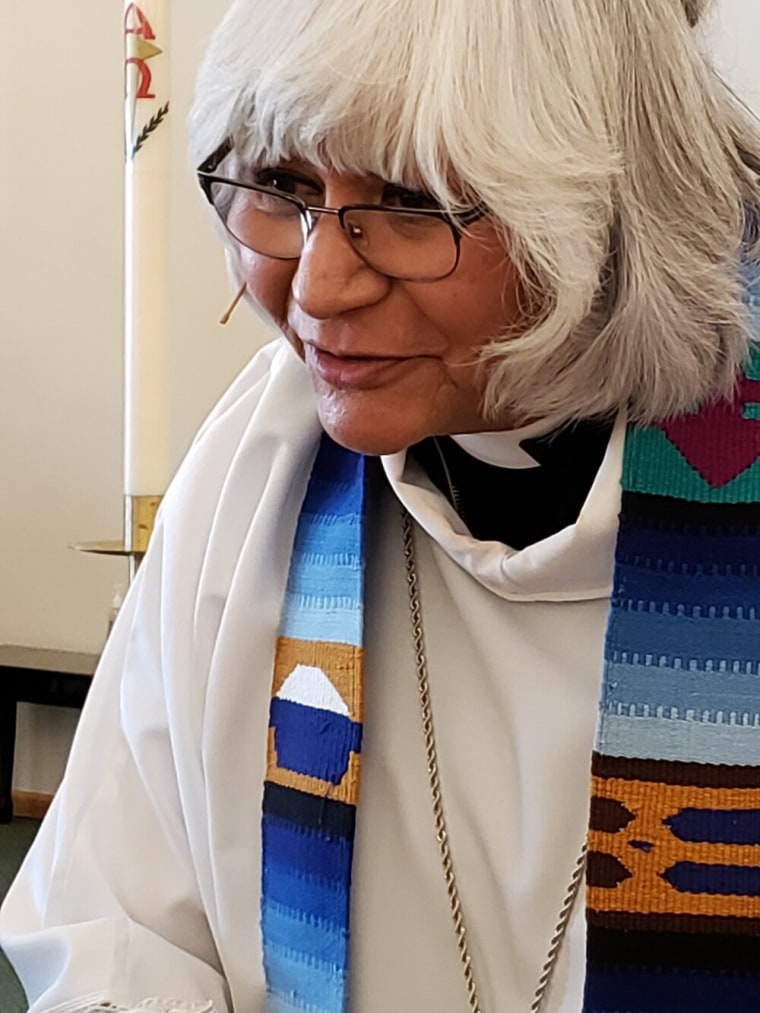In early October, the United Kingdom’s SkyNews ran a story about the “Detransition Advocacy Network,” a new charity founded by Charlie Evans, a former transgender man who detransitioned in 2018. Evans told SkyNews that “hundreds” of young trans people were seeking her help to return to their sex assigned at birth, and she said more resources are urgently needed for people experiencing post-transition regret.
“I’m in communication with 19- and 20-year-olds who have had full gender reassignment surgery who wish they hadn’t, and their dysphoria hasn’t been relieved, they don’t feel better for it,” Evans told SkyNews. “They don’t know what their options are now.”
Following SkyNews’ interview with Evans, news outlets across the U.K. and the United States covered the phenomenon of detransitioning. The BBC dedicated an hour to the topic on two of its flagship programs in late November, and right-wing outlets such as The Daily Wire and Breitbart covered the topic with an explicitly transphobic spin. New York magazine published a piece last month about another advocacy group for ex-trans people where one interviewee expressed concern that “many teenage women … have been convinced too quickly that the only solution is to change their sex.”
Related
NBC OUT
No one disputes that transition regret does exist and that there are trans people who return to the sex they were assigned at birth. However, trans advocates say some of the recent coverage around the topic portrays detransitioning as much more common than it actually is, fueling misconceptions about the gender transition process and painting trans people as just temporarily confused or suffering from a misdiagnosed psychological disorder. This misleading information, they say, can have serious real-world consequences, from misguided policy proposals to social stigma.
“I think the reason why detransition stories are popular in this given time is because it neatly fits into this idea that young people especially are being made to be trans,” Lui Asquith, a legal counselor for U.K.-based LGBTQ group Mermaids, told NBC News. “The media are conjuring up a panic about trans lives, and the first victims of that panic are the young people who are indirectly being told that they’re a phase.”
How common is ‘transition regret’?
There are an estimated 1.4 million transgender adults in the U.S., according to the Williams Institute at the UCLA School of Law, and the U.K.’s Government Equalities Office “tentatively” estimates there are between 200,000 and 500,000 trans people in Britain and Northern Ireland.
While the information regarding how many trans people detransition is sparse, those who work with the trans community say it is uncommon. “The actual numbers around them are significantly low,” Asquith said.
“Are there risks to getting gender affirming care? Maybe. But are there risks for not getting gender affirming care? Definitely. And the risks of the latter usually outweigh the former.”
DR. JACK TURBAN
The information that does exist appears to corroborate Asquith’s claim. In a 2015 survey of nearly 28,000 people conducted by the U.S.-based National Center for Transgender Equality, only 8 percent of respondents reported detransitioning, and 62 percent of those people said they only detransitioned temporarily. The most common reason for detransitioning, according to the survey, was pressure from a parent, while only 0.4 percent of respondents said they detransitioned after realizing transitioning wasn’t right for them.
The results of a 50-year survey published in 2010 of a cohort of 767 transgender people in Sweden found that about 2 percent of participants expressed regret after undergoing gender-affirming surgery.
The numbers are even lower for nonsurgical transition methods, like taking puberty blockers. According to a 2018 study of a cohort of transgender young adults at the largest gender-identity clinic in the Netherlands, 1.9 percent of adolescents who started puberty suppressants did not go on to pursue hormone therapy, typically the next step in the transition process.
Misinformation about the transition process
Stories about detransitioning often include misinformation not only about the prevalence of transition regret, but also about transitioning itself, according to transgender health experts and LGBTQ advocates. They say misconceptions about the gender transition process — including at what age different procedures are even considered — are widespread.
“We have people that are using media to educate themselves, and media is picking and mixing what they want to highlight and what they want to conflate or exaggerate,” Asquith said. “It’s incredibly unhelpful.”
Dr. Stephen Rosenthal, medical director for the University of California, San Francisco, Child and Adolescent Gender Center, said before the onset of puberty, there’s “no role” for medical intervention in a person who might be transgender, something that is not always made clear in media coverage.
For a child who has not yet reached puberty, trans health experts recommend seeking mental health support, because even prior to disclosing a gender identity that is different than the one they were assigned at birth, trans youth can experience symptoms including depression, social isolation and suicidal ideation. While medical guidelines advise that prepubescent children do not undergo hormone interventions, they state that allowing trans youth to “socially transition,” which can include taking on a new name and wearing a different style of clothing, can greatly benefit a child.
“It’s letting your child be themselves and loving them for who they are,” transgender advocate Gillian Branstetter said of the guidelines regarding children who haven’t reached puberty.
Related
NBC OUT
Once the child starts to experience puberty, health experts — including those at the U.K.’s National Health Service and the American Academy of Pediatrics — recommend a puberty blocker, as experiencing puberty when suffering from gender dysphoria can be traumatic for trans youth. With age, gender-expansive youth can explore other options such as gender-affirming hormones and surgery.
The World Professional Association of Transgender Health (WPATH) Standards of Care recommends deferring genital surgery until a person is at least 18 years old. But even then, only 25 percent of trans and gender-noncomforming adults in the U.S. reported undergoing some form of transition-related surgery, according to a 2015 U.S. Transgender Survey.
There have also been misconceptions surrounding the safety and lasting impact of nonsurgical transitioning steps, like puberty blockers. In September, a false news story linking the use of puberty blockers to “thousands of deaths” went viral, thanks in no small part to the signal boosting of right-wing media outlets like The Daily Wire.
Dr. Jack Turban, a resident physician in psychiatry at Massachusetts General Hospital who researches the mental health of trans youth, told NBC News that puberty blockers are actually a pretty low-risk way to provide care for gender dysphoric youth.
“Puberty blockers put puberty on hold so that adolescents have more time to decide what they want to do next. This is important because, while pubertal blockade is reversible, puberty itself is not,” he said. “It’s much more common to regret not getting puberty blockers than it is to regret getting puberty blockers.”
“With any intervention there are risks and benefits,” Turban said. “Are there risks to getting gender affirming care? Maybe. But are there risks for not getting gender affirming care? Definitely. And the risks of the latter usually outweigh the former.”
The consequences of misleading coverage
Advocates say that media coverage around transgender issues, and the public discourse it generates, can have a real-life impact on the lives of transgender people.
Branstetter, who as the former spokesperson for the National Center for Transgender Equality spent years speaking to the press and following coverage about transgender issues, said the media too often focuses on the “debate” over trans people’s validity, and does not pay enough attention to the struggles and joys of the trans experience.
“Decisions about newsworthiness are too often pinned to skepticism about trans people, or an assumption that your readers are more interested in whether trans people exist and not the actual experiences of trans people,” she said.
Asquith said coverage that questions the existence of trans identities can be particularly harmful to trans youth, an already vulnerable group that has an alarmingly high rate of attempted suicide and is subjected to disproportionately high rates of bullying and harassment. According to a 2017 National School Climate Survey by GLSEN, 44 percent of LGBTQ students reported feeling unsafe at school because of their gender expression.
“If one’s gender identity is different than that assigned at birth, if parents are being made to feel like that’s wrong,” Asquith said, “that is not OK.”
“The media need to take responsibility for that,” she added.
Related
NBC OUT
Misleading coverage has also provoked misguided policy proposals and political maneuvers disguised as genuine concerns for children’s health, according to LGBTQ advocates. Branstetter pointed to recent coverage about two Texas parents involved in a bitter divorce who disagreed over whether their 7-year-old is transgender. Following claims by the father that the child’s mother, a pediatrician, was trying to “chemically castrate” their child, Republican lawmakers in the state inserted themselves into the matter Gov. Greg Abbott ordered an investigation into the family, and Sen. Ted Cruz, R-Texas, went so far as to call parents who support their trans children “child abusers.”
Branstetter said that media coverage is tied to the bigotry that transgender people face in their daily lives. She pointed to the recently proposed bills in Texas, Georgia and Kentucky that would ban access to trans health care for minors, such as puberty blockers and hormone replacement therapy, and said that media coverage has played a large role in making anti-trans proposals like them politically fruitful.
“Those very proposals, should they be enacted into law, have a body count,” she said. “It would be restricting health care as prescribed by doctors, it would be people crossing state lines in order to get the health care they need. It would not merely destroy lives, it would end lives. And all of that is based on false myths about who trans people are and what our health care entails.”
‘Wedge issues’
Some advocates say the burst of detransition stories is just the latest in a cycle of media narratives that, intentionally or not, fuel misconceptions and stir up anti-trans sentiment.
Tea Uglow, creative director for Google’s Australia-based Creative Lab, is one of those advocates. Earlier this year, she debuted a project titled “Yours Sincerely, The Fourth Estate,” an archive of headlines and articles containing the word “transgender” from various U.K. and Australian news outlets between August 2018 and August 2019. Uglow told NBC News that stories about detransitioning and transition regret are the latest example of a broader trend.
“What is very obvious over the last few years is how there have been different wedge issues at different points, like the bathroom debatesand then this very interesting thing about trans women in sports,” Uglow said. “It’s a pernicious cycle.”
In 2016, following North Carolina’s reversal of a Charlotte city ordinance permitting transgender people to use bathrooms that align with their gender identity, the debate over which restroom trans people should use was covered widely, with some of the coverage veering transphobic. As recently as November 2018, the trans bathroom debate was still being used in political ads. More recently, a slew of national victories by transgender athletes prompted a call for trans women to be banned from participating in women’s sporting events over concerns that they would make the playing field uneven.
Related
NBC OUT
Less than one-quarter (24 percent) of Americans report having a close friend or family member who is transgender, according to the Public Research Religion Institute. This means for most people in the U.S. — and likely beyond — media coverage is the primary way they’re receiving information about the community. This is part of the reason Asquith said media outlets should be more aware of the impact their coverage could have on the trans community.
“It’s about media taking responsibility for the repercussions of the rhetoric that is out there,” Asquith said. “It is fueling hate.”
Turban has a prescription for those disseminating misleading information about trans people: Talk to the experts.
“What would be useful is if journalists and politicians reached out to doctors and physicians and researchers, people who actually know about this issue, rather than cisgender political pundits and people who don’t care for trans youth,” he said.












